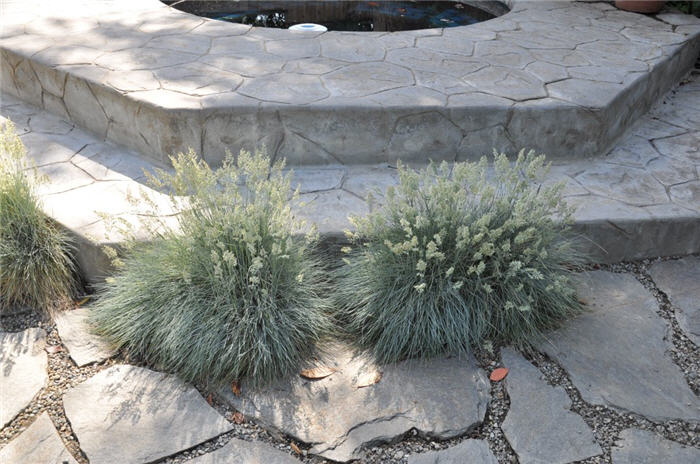| Botanical Name: Festuca cinerea 'Elijah Blue' | |
| Common Name: Elijah Blue Fescue |

-
Anatomy
-
Culture
-
Design
Plant Type
Ground cover, Perennial, Grass
Height Range
Under 1'
Flower Color
White
Flower Season
Summer
Leaf Color
Blue Green
Bark Color
n/a
Fruit Color
n/a
Fruit Season
n/a
Sun
Full, Half
Water
Low
Growth Rate
Fast
Soil Type
Sandy, Clay, Loam, Unparticular
Soil Condition
Average, Well-drained
Soil pH
Neutral
Adverse Factors
n/a
Design Styles
English Cottage, Formal, Japanese, Meadow, Mediterranean, Ranch, Native Garden, Woodland
Accenting Features
Unusual Foliage
Seasonal Interest
Winter, Spring, Summer, Fall
Location Uses
Entry, Perennial Border, Parking Strip, Park, Parking Lot, Walkways, With Rocks
Special Uses
Container, Filler, Mass Planting, Lawn Alternative, Small Spaces
Attracts Wildlife
n/a
Information by: Stephanie Duer
Photographer:
Photographer:
-
Description
-
Notes
The icy-blue coloration of this little grass makes it a stand-out in the garden. Its evergreen, clumping habit make it well suited for edging borders, mass planting, or ground cover. Grows in full sun to part shade. Generally under 12 inches, even in flower. Soft tufts of greenish white flowers emerge in early summer and turn tawny by summers end. Excellent for parkstrips.
Generally does not require cutting back, but a gentle raking in the early spring can dislodge old growth. Fescues resent wet soils so take care to not over-water; when planting, set the plant so the crown is slightly above soil grade to give it a good start (see Guides). It has a parkstrip area value of .75 feet.